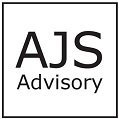Should I Lease Or Buy My Next Business Vehicle?
You’re in the market for a new business vehicle and you’re being bombarded by dealers offering you lease options. How does this compare with buying? First, let’s compare the after tax costs over a typical lease term.
If you’re purchasing, the often overlooked largest cost is depreciation. Amongst the other costs, allow for the opportunity cost of not being able to use the capital committed to purchase your vehicle, to finance other potentially higher yielding assets within or outside your business. Of the taxes, fringe benefit tax may also apply if your company owns the vehicle.
When leasing, many of the purchase costs (plus, of course, a profit margin) are rolled up in an all-in-one monthly payment to the lease company. These companies are generally able to incorporate lower depreciation and maintenance costs into lease payments because they can use their buying power to negotiate better discounts on vehicle purchases & running costs. Leasing therefore, can enable small businesses to get the benefit of the sort of bulk buying power that’s usually only available to businesses with much greater economies of scale.
Take a close look at the lease agreement itself. Get a good understanding of your actual and potential after tax costs. The devil is in the detail. For example, if there’s an agreed kilometre level, what’s the potential cost of exceeding it? What costs aren’t covered if it’s a fully maintained lease? What’s your liability if you want to terminate early? Are there potential refurbishment charges at the end of the lease? If it’s a finance lease, what’s the likely cashflow effect of exercising your option to purchase at the end of the term? And don’t make tax the main reason for your decision.
Ultimately, if you lean towards leasing you should do so if your cost comparisons check out, and if you feel that you:
- need to change your vehicle regularly. By regularly I mean every 3 – 4 years ie: the typical lease period.
- prefer the certainty of knowing a fixed monthly cost up front to factor into your forecasts and to build into your prices.
- don’t want to make a large up front purchase commitment into a rapidly depreciating asset that may only be worth 50% of its purchase price in 3 years’ time.
- either don’t want to put more capital into your business (whether from a new bank loan, or hire purchase, or your own cash), or you want to conserve your existing capital so that you've got more cash free to invest in other, higher yielding assets within your business.
- don’t mind making a commitment for the full lease term with the associated risk that this vehicle will continue to meet your needs throughout the full period. Your business could change significantly – or may not even survive – the period covered by a typical lease. In the worst case scenario you’d be left with a liability to meet, and no asset to sell.
- can predict upfront with reasonable accuracy what your vehicle usage is going to be over the lease period if your agreement specifies an annual kilometre limit. Therefore, if your actual kilometres travelled turn out to be significantly lower, then you may be overpaying for the use of the asset. If it’s higher, extra charges apply.

